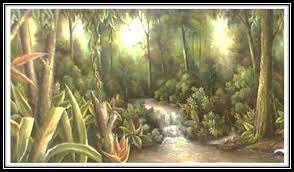This word refers to a group or thicket of bushes, vines and other plants of little height and entangled or confused; it is synonymous with undergrowth. But in Cuba it acquired a special meaning during the wars against Spanish colonialism. The Cubans who rose up to fight for the independence of Cuba left their homes and went to the manigua to carry out the war from there.
Also in Cuba it is noted irse a la manigua with the meaning of “In colonial times, to take up arms against the Spanish colonial government” (Haensch/Werner Dicc. esp. Cuba).
Only a few months after arriving in the country, Antonio Maceo, during the Necessary War, initiated on February 24, 1895, was able to realize his plans in the manigua and made El Cubano Libre reappear on August 3, 1895.
She fought in the manigua and says…Amazonas Cubanas del 95 : el combate de Paso Real.
https://repositoriodigital.ohc.cu/s/repositoriodigital/item/6158
The mambises who rose up in Cuba on October 10, 1868 in the redeeming manigua, sowed the seed of independence that germinated until it bloomed in an imperishable way in Cuba.
https://www.tribuna.cu/historia/2019-10-10/ellos-sembraron-semilla-de-la-independencia
The heroic deed that had begun in 1868 and continued in 1895 was full of bare feet, of subsistence, of cold and loneliness. For those men -and women- who resisted, who made of life in the manigua, and their tactics, a natural source, memory of what we are today, our culture and our identity, a tribute is needed this February 24.
http://www.cubadebate.cu/opinion/2014/02/24/cuba-en-la-manigua-fotos-y-video

